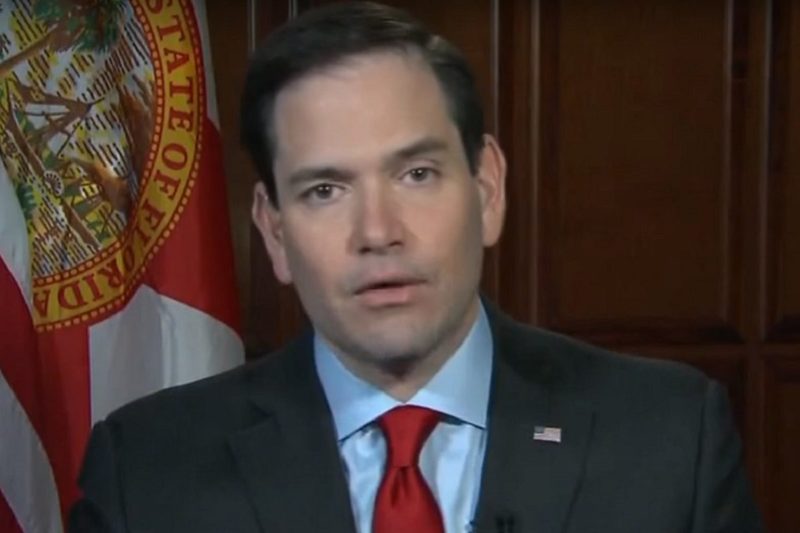Marco Rubio, Anti-Choice Crusader, Drops Presidential Bid
The decision to leave the race came as Donald Trump defeated Rubio in a winner-take-all battle for Rubio's home state of Florida’s 99 Republican delegates.

Sen. Marco Rubio (R-FL) dropped out of the race for the Republican presidential nomination Tuesday night, ending a campaign marked by anti-choice rhetoric that compelled many in his party to question his electability.
The decision to leave the race came as Donald Trump defeated Rubio in a winner-take-all battle for Rubio’s home state’s 99 Republican delegates.
“I want you to know that there’s nothing more you could have done. I want you to know that we worked as hard as we ever could. America is in the middle of a real political storm, a real tsunami, and we should have seen this coming,” Rubio said in a speech announcing his departure from the race. “Tonight, while it’s clear that while we are on the right side this year, we will not be on the winning side.”
Although Rubio was lauded by the media and many party members as a “Republican savior,” offering a fresh take on conservatism, his positions on abortion rights were extreme enough that other Republicans feared he may be unelectable in a general election.
“Marco has no exceptions for rape and incest,” former presidential candidate Sen. Lindsey Graham (R-SC) told the hosts of MSNBC’s Morning Joe in February. “I think it’s going to be very hard to grow the party among women if you’re gonna tell young women, ‘If you get raped, you’ve gotta carry the child of the rapist.’ Most pro-life people don’t go there.”
Although Rubio later said that if elected he would sign anti-abortion measures into law that contained exceptions, he nevertheless reasserted his opposition to those provisions during a February interview on ABC’s This Week.
Rubio’s anti-choice views were a key part of his platform throughout his campaign, even leading him to create an advisory board of anti-choice leaders and activists to advise his campaign on how to chip away at abortion rights.
After years of trumpeting “religious liberty” laws designed to allow conservatives around the country to restrict access to contraception and discriminate against LGBTQ people, Rubio in February secured the endorsement of David Green, the founder and CEO of arts-and-crafts chain Hobby Lobby. It was Green’s company that was at the center of a Supreme Court case giving employers permission to deny insurance coverage for contraception because of the owners’ religious beliefs.
Rubio had signed an amicus curiae brief in support of Hobby Lobby for its Supreme Court case in 2014, Burwell v. Hobby Lobby.
Prior to the Hobby Lobby decision, Rubio co-sponsored the failed Religious Freedom Protection Act of 2012 with Sen. Joe Manchin (D-WV), which the National Women’s Law Center argued would have taken “away the right of millions of women to have any insurance coverage for contraception, based on an employer or health plan’s religious or moral beliefs—whether affiliated or not with any religious entity.”
Rubio co-sponsored the “Blunt amendment,” which would have similarly allowed employers to deny employees contraception to which they had moral objections.

